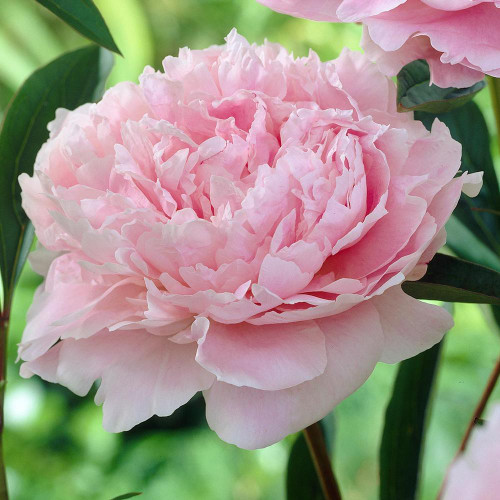Peony
(Paeonia)
Common Names: Garden Peony, Common Peony
Happiness
Indications: Supports the transformation of states of sadness and despair, helping you to find your inner joy and peace.
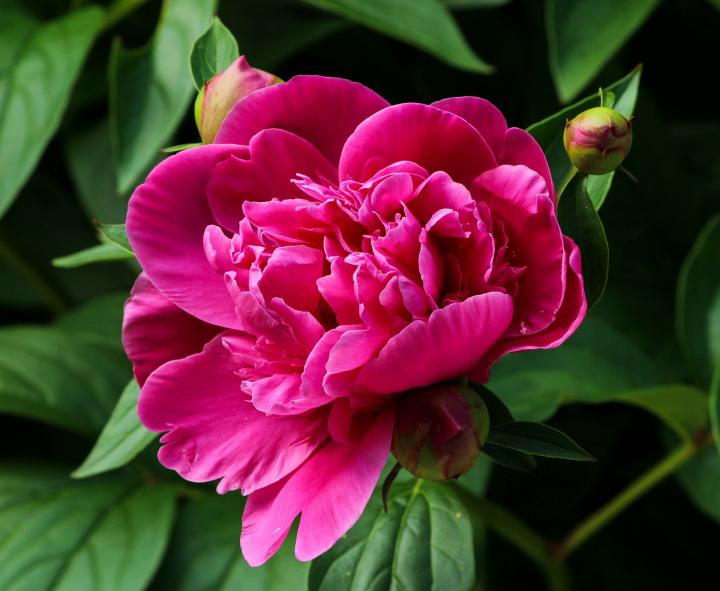
The stunningly beautiful peony is hard to ignore. She generously produces large blossom after large blossom in shades of pink, white, red, and magenta. Her lovely fragrance fills the air. Every year the plant spreads wider and offers more abundance.
It’s hard not to feel joy in the presence of a peony. She beams at you with generosity, as if there were no limits to her offerings. Shear happiness is a commodity that you can’t really ever have too much of. It is a state of well-being that indicates you feel good about yourself and your life.
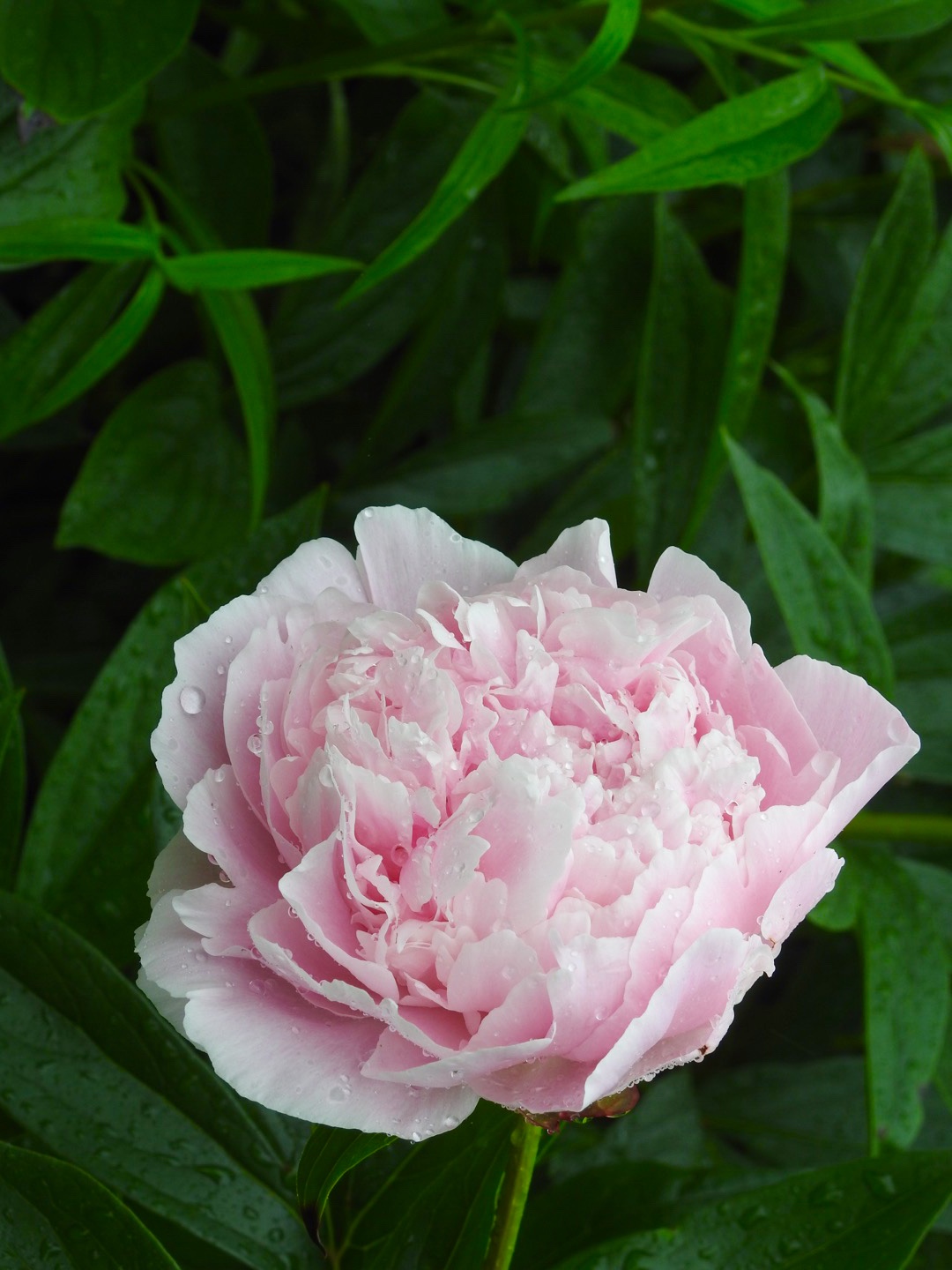
True happiness does not rely on a perfect life with perfect relationships and lots of money. It is an attitude of optimism that can meet adversity with positive energy and creative solutions.
Even the happiest of individuals will feel blue or down sometimes because that is the natural flow of authentic emotions that occur when living a full life. True happiness is not a Polly Anna disregard for events, but rather an abiding ability to feel inspired and active and to see possibilities before you.
The bright and lovely Peony flower essence offers you just that -- a sense of well-being, joy, and peace of mind to meet feelings of sadness or despair and to help you see and know the beauty that surrounds you. You can now literally allow it to stream through you.
Research shows that much of happiness is under personal control. Regularly indulging in small pleasures, getting absorbed in challenging activities, setting and meeting goals, maintaining close social ties, and finding purpose beyond yourself will increase life satisfaction. Population studies continue to show us that some of the world's poorest people are the most content, happy, and grateful.
If you have been struggling with equilibrium in your emotions, allow the beautiful peony flower essence to come into your heart and expand your perspective to see the light and love around you. As sad as things may appear to you now, you need to remember that you are resilient and these experiences you are going through will look better in the morning, when the rising Sun's light and the dew drops on the peony’s pretty petals offer you a new day to step into with refreshed passion and joy freely given by a Creator Spirit who truly loves you.
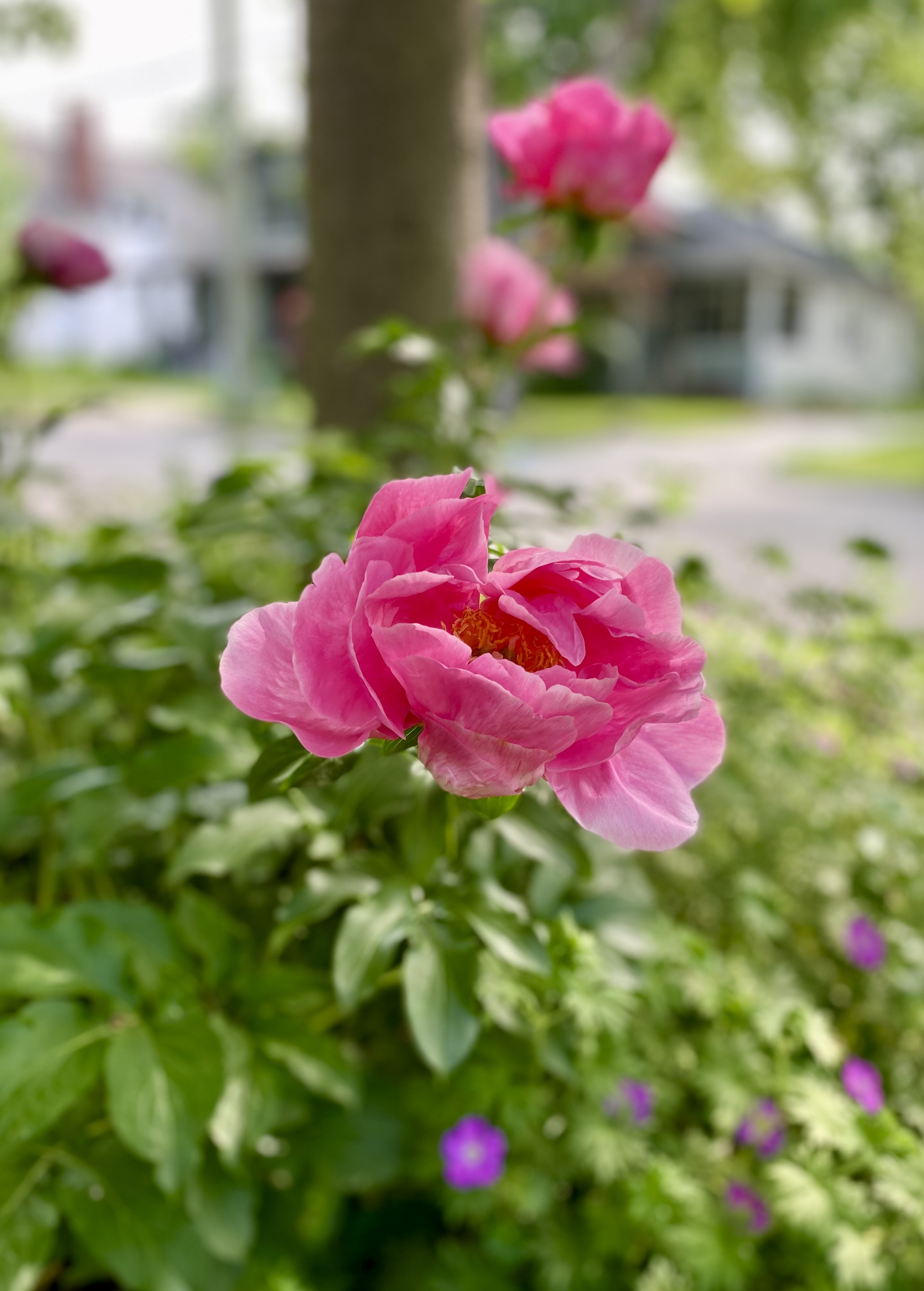
Revered in China and Japan, peonies have been prized by many cultures for both their beauty and medicinal qualities. Originally growing in the eastern portion of the world, they have been cultivated for over 4,000 years. In Chinese gardens as early as 1000 BC, they acquired a Chinese name translating as "most beautiful".
Peony's botanical name 'Paeonia', however, derives from the legends of Ancient Greece. One Greek myth links the flower's name to a nymph named Paeonia whose beauty attracted the attention of Apollo (god of the Sun and light, and more). As the two were flirting, Paeonia glanced around and to her surprise she saw Aphrodite (goddess of beauty, and more) watching them. Suddenly, Paeonia reddened and turned bashful. Aphrodite, jealous and raging at the audacity of a nymph flirting with the god Apollo, expressed her feelings by turning Paeonia into a flower, the peony.
In a separate Greek myth, Paeon was a brilliant student of the god of healing and medicine, Asclepius. Severely wounded in battle, the god Pluto searched for Asclepius to treat his wounds but Asclepius was no where to be found. So Pluto asked Paeon to treat the wounds. Paeon responded by applying a new treatment he created using a milky liquid extracted from the root of a peony plant. This treatment proved successful; Pluto's wounds healed. When Asclepius found out, he raged in jealousy and in anger at his student out-shining him, and threatened to kill Paeon. Zeus, the supreme Greek god, intervened. To honor, protect, and bestow immortality on Paeon, Zeus turned Paeon into a beautiful flower, the peony.
China has legends about peonies as well. In one, a whimsical and beautiful empress demonstrated her magical powers one chilly winter morning by commanding all the flowers in the imperial garden to bloom. One flower, however, -- the peony -- dared to defy her. Shocked and angered by the flower's audacity, the empress ordered her attendants to banish all peonies to the frigid and distant borders of the empire. As time passed, to everyone's surprise, the peony thrived in that harsh and unforgiving environment, flourishing there with vibrant and captivating blossoms. Witnessing the peony's resilience and determination, the empress was moved by the plant's spirit and steadfastness. In recognition of the peony's extraordinary qualities, she rescinded the exile and bestowed upon the peony the grand title of "Queen of All Flowers."
Feng Shui is a Chinese practice that incorporates the services of peonies. In Feng Shui, peonies placed in locations such as home or business are auspicious. Peony blossoms placed in the home are thought to attract positive energy, luck, prosperity, happiness, love, and romance. Which of these qualities you want to attract influences where in the home you place the peonies. For example, if your intention is to nurture relationships and fulfillment, Feng Shui suggests placing peony blossoms or images of them in the living room or bedroom.
Different cultures through the ages have attached different symbolic meanings to peonies. Ancient Greeks and Christians in the Middle Ages viewed the peony as a symbol of healing. In the Victorian Era, peonies became part of a society-wide game involving a flower language Victorians devised. A flower's type and color spoke the feelings or emotions of the person giving that flower to someone else. Peonies emerged as flowers for romance, luck, and (harkening to Paeonia in the Greek myth) bashfulness. To convey good wishes and feelings of affection Victorians exchanged peonies in bouquets.
In Chinese culture, the peony has many meanings. Overall the peony flower represents wealth and good fortune, but the different phases of bloom also carry meaning. Recognizing partnership between ants and the opening of a peony blossom, the Chinese view an opening peony blossom as signifying industriousness and optimism. Peace and the rewards of labor are the meaning attached to a fully open peony blossom. In Feng Shui, the peony plant is often seen as a symbol of peace and protection, and the color of blossom signifies associated qualities. Red signifies passion, love, and romance. White signifies purity, innocence, hope, and openness. Pink (as a combination of red and white) signifies innocence, purity, hope, and love. In Japan, the peony flower is associated with fortune, wealth, and nobility, as well as protection.
Throughout Asia and Europe, peony's root, seeds, and flowers were all seen as having medicinal qualities. Peonies were used to treat bladder and stomach problems, jaundice, night tremors, and more. With a long and prominent history, the peony plant is itself long-lived. Its life can span 100 years or more.
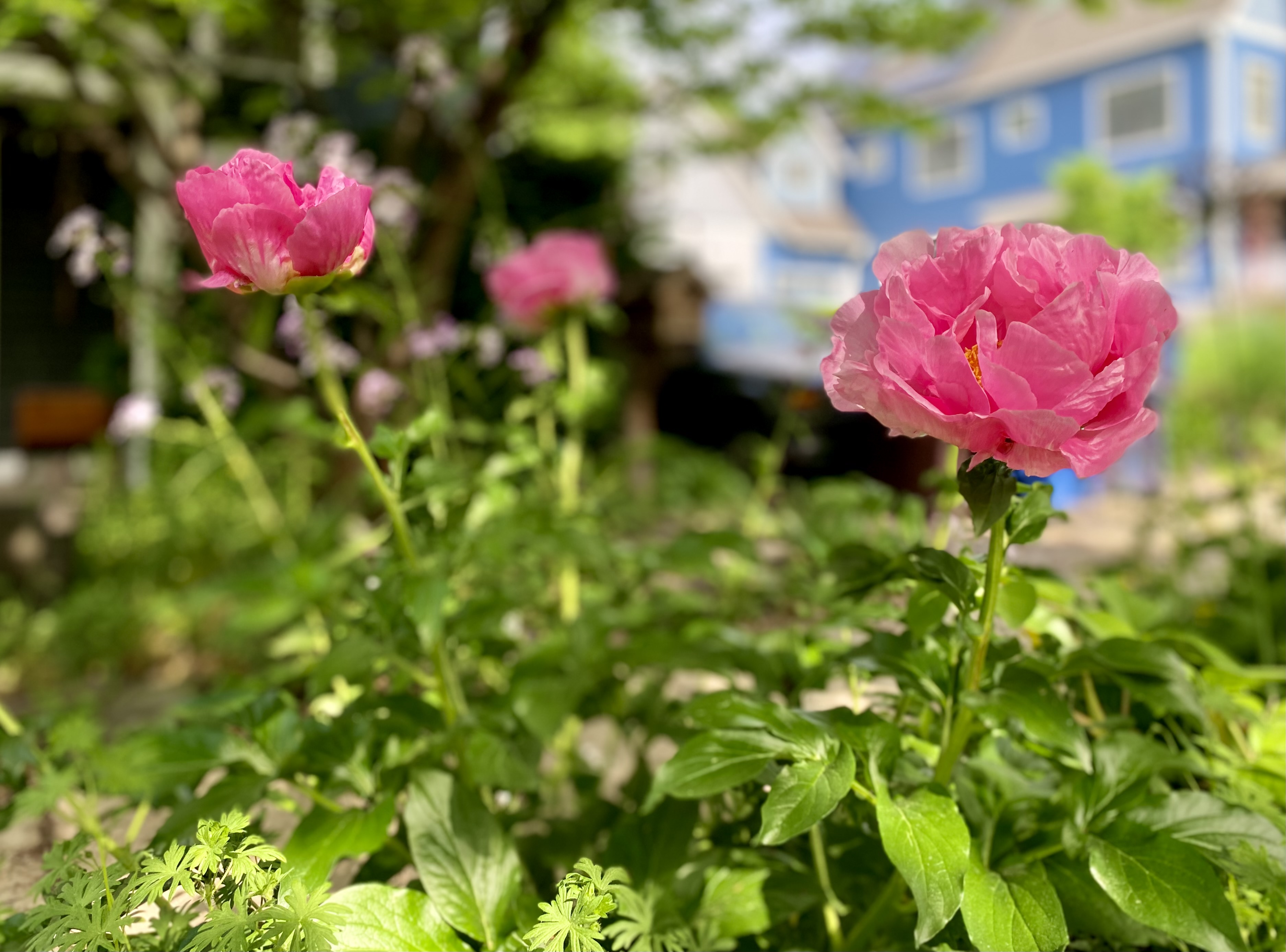
The statements made regarding these products have not been evaluated by Food and Drug Administration. Theses products are not intended to diagnose, treat, cure or prevent any disease. All information presented here is not meant as a substitute for or alternative to information from healthcare practitioners.
❤️
copyright © 2010 by Merri Walters Great Lakes Sacred Essences sacredessences.com

